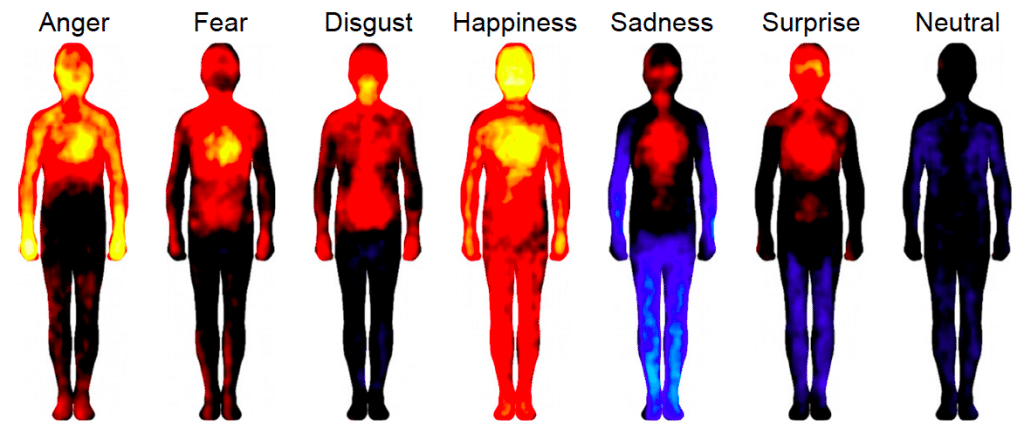Emotions, bubble hopping and where to hang your hat

Te traemos un artículo muy interesante sobre la rutina y cómo un ingeniero de San Francisco creó una App, para ayudarle a vivir nuevas experiencias.
As a new mother I hardly have time for anything other than work, home and family. I have a Kindle and I continue to buy books that I never have time to read as the train ride to work is too short and I´m usually ready to pass out by bed time. So I decided I would try listening to audio books or podcasts on my journey to and from work. In my search, I remembered that when I lived in the US I used to love many shows broadcast on National Public Radio (NPR) and found a few interesting NPR podcasts online such as: Invisibilia, Fresh Air, The Ted Radio Hour, How I built this and Up First.
I started with Invisibilia. It´s about the invisible forces that control human behaviour – ideas, beliefs, assumptions and emotions. It´s a mix of scientific research and human interest stories that ultimately encourages you to see your own life differently.
 One Invisibilia podcast I listened to recently, Reality Part 2, explored the story of a Google engineer living in San Francisco that had a wonderful bubble (a great, active life full of wonderful people, amazing food and adventure) but upon waking up one morning he realised that, although a great bubble, the monotony and security of it were hindering his possibilities of meeting new people, trying new things and ultimately his ability to grow and change.
One Invisibilia podcast I listened to recently, Reality Part 2, explored the story of a Google engineer living in San Francisco that had a wonderful bubble (a great, active life full of wonderful people, amazing food and adventure) but upon waking up one morning he realised that, although a great bubble, the monotony and security of it were hindering his possibilities of meeting new people, trying new things and ultimately his ability to grow and change.
Since he is an engineer, he approached this as he would any problem, by inventing a fix to solve it. He invented an App for himself, soon to be released to the public, which chooses random Facebook events in his area for him to attend without any filter or discrimination. He also created a completely random playlist on Spotify and selects random restaurants to eat at, places to live etc. His life is dictated not by preference but by random electronic choices, or chance.
Listen to the podcast here (30 min): http://www.npr.org/2017/06/08/531905309/reality-part-two
This episode starts out by exploring the idea that people tend to think that their way of interpreting the world around them is 100% correct and if someone else sees it differently, they must be mistaken. It details how this is mainly a western cultural view which can be traced back to Greek philosophy and one which is not present in certain Asian cultures. In many Asian cultures it is generally accepted that two people may see a situation in completely opposite ways and both may be right or both can be wrong.
Let´s take a step back and talk about how we interpret and interact with our world.
In a previous episode on emotions, Invisibilia explores Neuroscientist Lisa Feldmen-Barrett´s twenty-five years of research that proves emotions are not universal, inevitable and dependable automatic reactions to certain situations but are products of how we see and interpret the world and the situations that arise based on our internal concepts.

Listen to the podcasts here (Part 1 and 2): http://www.npr.org/programs/invisibilia/530718193/emotions
Lisa explains that our brain receives only four simple messages from all of our bodily systems which are pleasantness, unpleasantness, arousal, and calmness. From the moment you are born and as you grow and experience the world around you, you start to create concepts to define and explain these four sensations and, based on this, your brain develops its own theory on what they mean and how to interpret them. These concepts, in essence, are your brains using your past experience in order to make sense of what´s happening to you and in the world around you.
So, Lisa says, a given situation does not provoke an emotion like a reflex, for example when the doctor hits the right spot on your knee and your leg kicks up on its own. You create emotions based on your interpretations of situations or stimulus.
Your concepts of course are also influenced by your family and culture. You have an experience and your mother tells you this is happiness, sadness, anger etc. So emotions are not inevitable feelings that happen to you, hijacking your mind and forcing you to react a certain way, but something you can change by altering those concepts or how you see the world.
For further reading, here is an interesting interview of Lisa Feldmen-Barrent on her book “How emotions are made, the secret life of the brain”: https://www.theverge.com/2017/4/10/15245690/how-emotions-are-made-neuroscience-lisa-feldman-barrett
Ok, back to bubble hopping…
Everything about your daily life or your “bubble” – routine, family, job, route to work, preferences for music, food, sport and leisure activities – creates and reinforces your concepts.
So, if you wake up every morning and take the same route to work, the same route back home, see the same people, eat at the same restaurants, buy at the same grocery store and go to the same bank, you have very little chance of having new experiences, creating new concepts or changing your existing concepts to be able to see the world differently.
As an expat abroad, I have spent my life bubble hopping and, as I am sure most expats abroad do, I ruminate on what my life would have been like had I stayed in one place, in my home town surrounded by my family and friends, the same people in, most likely, recurring situations.
Due to my adventurous bubble hopping, moving around often and settling down so far away from home (over 9,000 kilometres away and 24 hours door-to-door travel), I see my family perhaps once every two years and my closest friends are now found sprinkled around the globe. Our lives are distinct and busy and – even with Skype, WhatsApp and Ryanair – it´s hard to find time to catch up but when we do it´s as though we continue to remain connected, perhaps even cosmically. I´d like to think that they all part of my “karass” (a fictional term invented by American author Kurt Vonnegut in his book Cat´s Cradle to describe a network or group of people who are somehow affiliated or linked spiritually). However, I am often left with a sense of longing for my roots and for the closeness of community and family that only comes from having stayed in one place.
Is it better to venture out into the wild world, ditching your routine and putting away your preferences and boldly hopping from one place to another, one experience to another, one group of friends to the next and one job to another in order to create infinite opportunities to change your concepts? And is the price of this freedom being cut off from all that you love, from your roots? Or is it better to stay, cherish your roots and foster deep long-lasting and meaningful relationships in order to have the opportunity to be a steadfast part of a strong community?
In an ever growing more globalised world, culture and economy, people flock to where they feel they will have a better life. From climate change and political refugees to professionals relocating to a new city in search for furthering their career path, to lovers who leave everything behind to live side by side with their partners, perhaps it´s the new norm to feel a sense of personal sacrifice on choosing one over the other and to wondering if the grass is really greener on the other side of those choices.
I am reminded of a couple of sayings which are similar but communicate something very different:
“Home is where the heart is” a proverb which tells us: your home will always be the place for which you feel the deepest affection, no matter where you are.
“Home is where you hang your hat” which means: rather than feeling nostalgic or sentimental, one should simply accept any place where one happens to reside as one’s home.
In this article I most certainly do not have the answers, just what I consider to be thought-provoking questions and reflections. I invite you to leave your comments and continue the discussion by sharing your personal experiences and ideas.
Glossary
pass out (expression, verb): to become unconscious, for example from the heat or tiredness
broadcast (verb): to emit a television or radio signal
assumptions (noun): something that you think is true without having any proof
encourage (verb): to give someone confidence or hope
hinder (verb): to make it difficult to do something or for something to develop
approach (verb): to deal with something
Random (adjective): done or chosen without any plan or system
Mistaken (adjective): If you are mistaken, or you have a mistaken belief, you are wrong about something
Arousal (noun): the state of being sexually excited
Reflex (noun): a physical reaction that you cannot control
Hijacking (verb): to take control of an aircraft during a journey, especially using violence
Reinforces (verb): to make an existing opinion or idea stronger
Expat (noun): someone who does not live in their own country
Ruminate (verb): to think carefully and for a long period about something
Ditching (verb): to get rid of someone or something that you do not need or want now
Boldly (adjective): not frightened of taking risks
Foster (verb): to encourage a particular feeling, situation, or idea to develop
Steadfast (adjective): refusing to change your beliefs or what you are doing
Flock (verb): to move or come together in large numbers
Furthering (verb): to make something develop or become more successful
Norm (noun): the usual way that something happens






